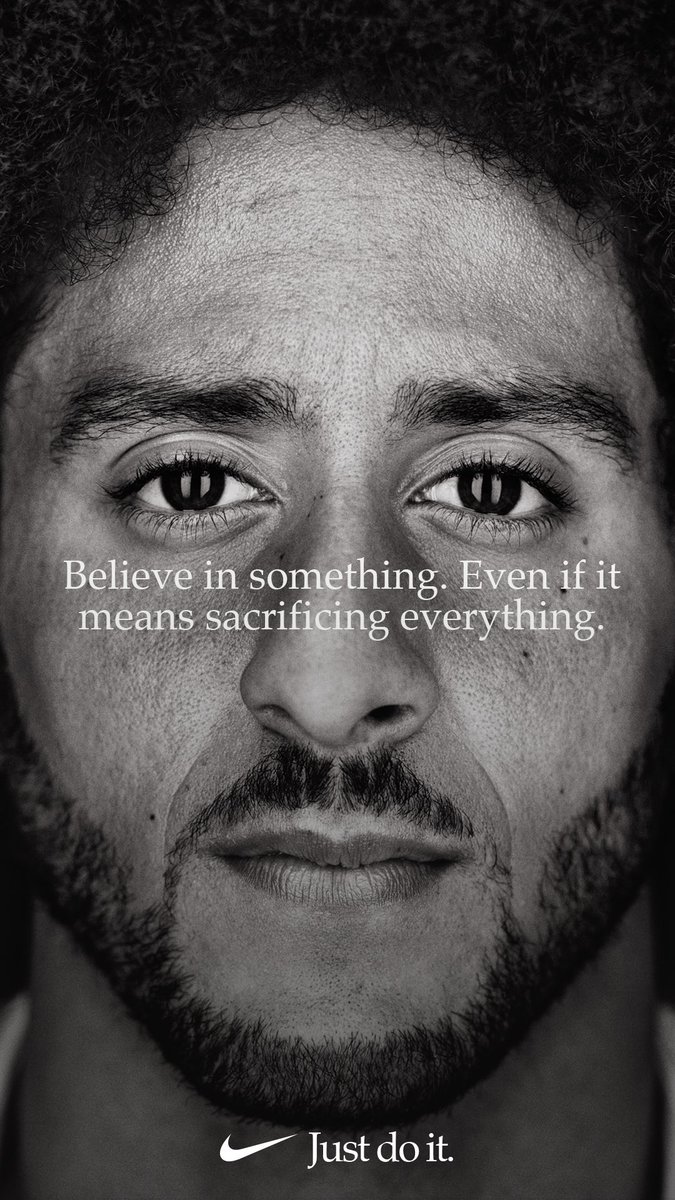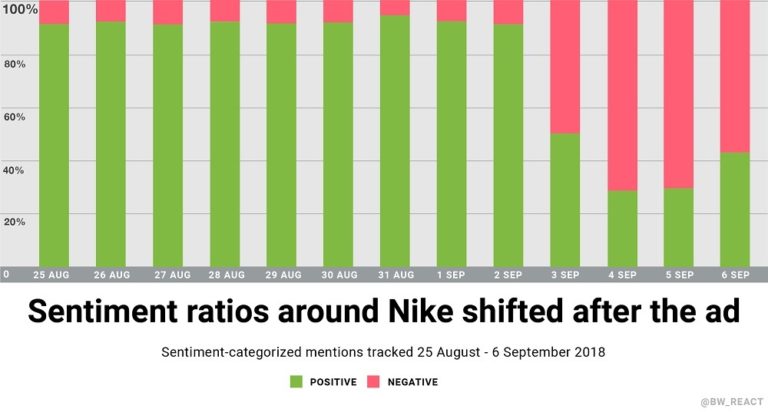Nike Didn't "Just Do It"
A week ago Nike launched the 30th (30!?! – that’s crazy) anniversary of its “Just Do It” campaign with an ad featuring the most controversial athlete in the U.S., Colin Kaepernick.

The video version is quite nice.
Kaepernick, of course, is the currently-unemployed NFL quarterback who started kneeling during the national anthem to protest police brutality against people of color. People opposed to the gesture have said that it’s disrespectful to the flag, country, and military, although Kaepernick and others who kneel have said that they are only concerned with police misconduct and not commenting on those.
Nike is considered to be one of the 20 most valuable brands in the world. With revenue of $36 billion last year, it spent over $3 billion on advertising. It’s an extremely sophisticated marketer. It didn’t make this decision lightly.
On social media, mentions of Nike were immediately up 10X while sentiment towards Nike plunged.

The free media alone was estimated to be worth over $163 million in just a few days. And others found that the sentiment turned positive within a few days.
Brandwatch can only segment its sentiment analysis by gender, and there was little difference between how men and women felt toward the ad. Much more interesting would have been subtabs for age and race. Nike’s customers are largely under 35.
A study of the ad’s impact found that it was strongly positive, and wildly so among Gen Z and Millennials (aka Nike’s market). You think Nike didn’t know that before it made the decision to go with it? Nike didn’t just do this; it built a top 20 brand on research.
Not only does Nike not care if older, white men on Fox News don’t like the ads, it may welcome that. While some called for a boycott of Nike and burned the Nike products that they had previously bought, Nike sales were up 31 percent.
Shares of Nike stock dropped a few dollars after the announcement of the ad, but rebounded recently upon news of the sales uptick.
People are increasingly comfortable with brands standing for something, and possibly even demanding it. Nike previously has taken positions on AIDS, gender inequality, disabilities, and religion (with its Pro Hijab); not only their customers but their athlete endorsers demand it.
